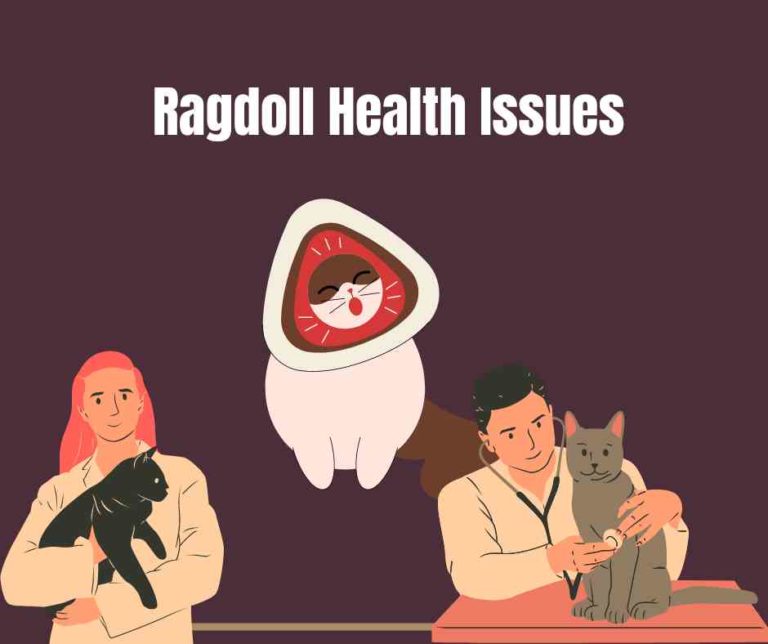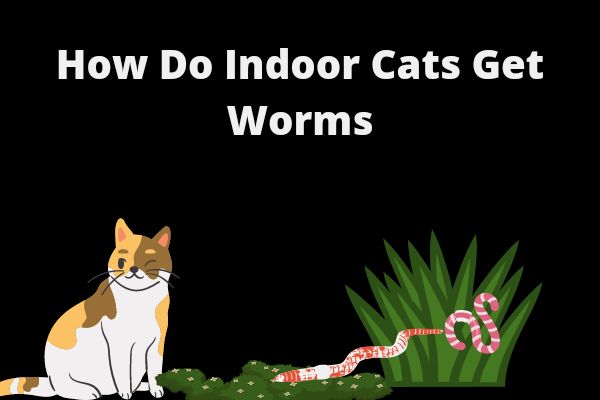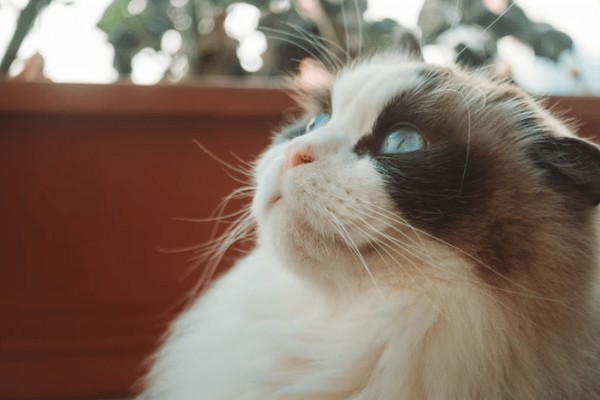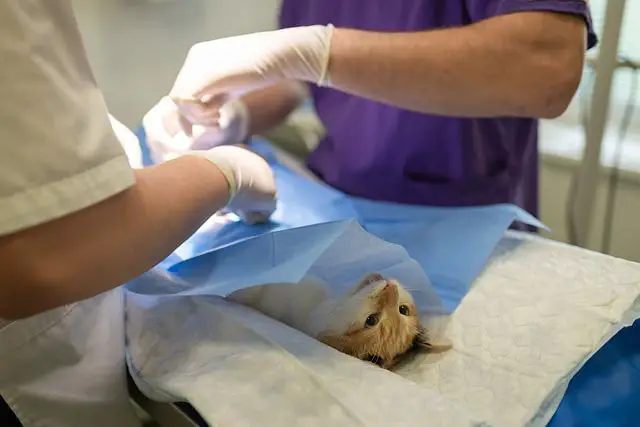Obesity in Ragdoll Cats [Questions]
![Obesity in Ragdoll Cats [Questions] Obesity In Ragdoll Cats](https://petcreeks.com/wp-content/uploads/2021/03/Obesity-In-Ragdoll-Cats.jpg)
Obesity in ragdoll cats is a common problem among ragdoll owners, in this article, we will break down obesity in ragdoll cats.
Ragdoll cats are among the top most popular breeds of cats in the United States, see full ragdoll cat profile.
All cats are susceptible to obesity, but certain breeds like ragdolls are more prone to becoming fat and it can affect their health.
Take a look at how obesity is a health concern for your feline friends, and what you can do to reduce the problem.
Causes of Obesity in Ragdoll Cats
Here are some common causes of obesity in Ragdoll cats:
- Overfeeding: Feeding your cat more than recommended, or not measuring their food portions, can lead to obesity.
- Free feeding: Leaving food out for your cat to graze on all day can contribute to overeating and weight gain.
- Lack of exercise: A sedentary lifestyle can lead to weight gain in cats, just like in humans.
- Neutering/spaying: After being neutered/spayed, cats tend to be less active and require fewer calories, leading to potential weight gain if their food intake is not adjusted accordingly.
- Genetics: Just like humans, some cats may be predisposed to obesity due to genetics and family history.
- Age: As cats age, they may become less active and require fewer calories, but their owners may not adjust their food intake accordingly.
- Medical conditions: Certain conditions such as hypothyroidism, hyperadrenocorticism, or diabetes can cause cats to gain weight.
- Treats and snacks: Giving your cats too many treats or high-calorie snacks can contribute to weight gain.
- Stress: Cats that are stressed or anxious may overeat as a form of comfort, leading to weight gain.
Obesity In Ragdoll Cats Questions
Here are some common questions on ragdoll cats and obesity:
Is obesity in Ragdoll cats a common problem?
It is common for ragdoll cats to develop obesity but this is often a treatable condition.
If you notice your ragdoll cat is noticeably overweight, speak to your vet to explore the causes.
It is important that you keep their food and treats to a moderate level, but never withhold nutrients.
Can Obesity Be Fatal in Ragdoll Cats?
![Obesity in Ragdoll Cats [Questions] Can Obesity Be Fatal In Ragdoll Cats](https://petcreeks.com/wp-content/uploads/2021/03/Can-Obesity-Be-Fatal-In-Ragdoll-Cats.jpg)
Ragdoll cats can become quite ill and sometimes have to have a life-saving operation because of obesity.
You should always seek your vet’s advice if your ragdoll cat’s weight seems to be putting them at risk of illness.
What are the signs of obesity in Ragdoll Cats?
If your ragdoll cat has a thick layer of fat, especially around the abdomen, it can be hard to tell if your ragdoll cat is overweight.
If you are concerned about your ragdoll cat’s weight, speak to your vet to check if their BMI is too high and if there are any other medical conditions that may be putting your ragdoll cat’s health at risk.
Ask your vet about weight-loss programs if you want to intervene early. This will help reduce the risk of obesity progressing and causing serious health problems.
Is Obesity in Ragdoll Cats linked to other health problems?
Obesity can also lead to your ragdoll cat suffering from many other health conditions.
It can also be associated with thyroid and kidney disorders, hearing problems, diabetes, and so on.
Obesity can also affect the way your ragdoll catwalks and eat. If you notice your ragdoll cat stopping and looking longingly at food, this may be a sign of obesity.
Does my ragdoll cat really need a special diet to avoid obesity?
Your ragdoll cat does not need a special diet to avoid obesity. It is possible to feed your cat a healthy and balanced diet.
However, some ragdoll cats may benefit from a special diet to help them manage their weight.
Ragdoll cats that are overweight may need special food that contains extra fat, carbohydrates, and protein.
You should talk to your vet before trying a special diet.
How to keep your Ragdoll Cat’s Weight Healthy?
Keep a close eye on your ragdoll cat’s weight and keep an eye on the food they are eating.
It may be worth trying to feed your ragdoll cat a diet with the right balance of food for their weight.
Always try to feed your ragdoll cat a balanced diet that includes a low-fat or reduced-fat version.
It may be better to switch your ragdoll cat to reduced-calorie food rather than stopping them from eating their normal food altogether.
Obesity can also be a sign of a problem with the thyroid or kidneys. Speak to your vet about how you can manage your ragdoll cat’s weight.
As always, your vet can help you to put your ragdoll cat on a healthy diet.
Are there any health benefits to feeding your ragdoll cat a special diet?
Depending on the type of diet your ragdoll cat is being fed, you may find some health benefits in feeding your cat a special diet.
Some foods that are used to feed special diets are vitamins, minerals, and antioxidants, which may help your ragdoll cat’s immune system and heart health.
What are the best diet foods for Ragdoll Cats?
It is best to get your ragdoll cat fed a diet that contains a mixture of food types rather than a single type of food, this helps them to stay healthy.
A special diet is not necessarily the best diet food for your ragdoll cat. Obesity is one of the health issues in ragdoll cats.
The best diet food for your ragdoll cat will be the best diet food that meets their needs and tastes nice to them.
Ragdoll cats can also have difficulties with consuming too much food, so a high-protein diet may be best for them.
However, a high-protein diet may be difficult to eat for a cat with a problem like hip dysplasia.
This post will not be complete if we did not provide you with the best cat food for your ragdoll cat.
The Best food for Ragdoll Cats
- TCfeline RAW Cat Food Premix / Supplement to Make a Homemade, All Natural, Grain-Free, Holistic Diet.
- Wild Rocky Mountain Grain-Free Recipe with Roasted Venison and Smoked Salmon Dry Cat Food for All Life Stages.
- For Kittens use this: WholeHearted Canned Kitten Food – Grain Free Tuna Recipe Flaked in Gravy.
Shedding can be a problem in ragdoll cats read more about ragdoll shedding and grooming here.
Here are the best grooming tools for your ragdoll cat:
Best Grooming tools for long hair and short ragdoll cat include: 1. Oster ShedMonster De-Shedding Tool, Medium or Long Coats (DRP-SHED-RPQL). 2. Hertzko Pet Deshedding Tool Gently Removes Shed Hair – for Small, Medium, Large, and Cats, with Short to Long Hair.
Ways to prevent obesity in ragdoll cats
Here are some common ways to prevent obesity in Ragdoll cats:
- Portion control: Make sure to measure your Ragdoll’s food portions to ensure they are getting the right amount of food, and not too much.
- Choose high-quality food: Ragdoll cats require high-quality, nutritious food to maintain their health, so choose a food that is appropriate for their age, weight, and activity level.
- Frequent feeding schedules: Instead of feeding your Ragdoll once or twice a day, try feeding them small and frequent meals throughout the day to help regulate their appetite.
- Use puzzle feeders: Puzzle feeders and treat-dispensing toys are a great way to help your Ragdoll stay active and stimulated, while also controlling their food intake.
- Provide plenty of exercises: Ragdoll cats are playful by nature, so make sure they have plenty of toys and opportunities to move around and play.
- Encourage playtime: Playing and spending time with your Ragdoll cat can help to increase their activity level and maintain a healthy weight.
- Regular veterinary check-ups: Regular check-ups with your veterinarian can help you keep track of your Ragdoll’s health and identify any potential weight-related issues early on.
- Avoid overfeeding: Avoid giving your Ragdoll too many treats or table scraps, as this can lead to weight gain and other health problems.
- Monitor their weight: Regularly monitor your Ragdoll’s weight and body condition to ensure they are maintaining a healthy weight and make adjustments to their diet or exercise routine as needed.



![Cat Lethargic Not Eating or Drinking [Reasons] Cat Lethargic Not Eating or Drinking](https://petcreeks.com/wp-content/uploads/2023/02/Cat-Lethargic-Not-Eating-or-Drinking-768x555.jpg)

![How Do Cats Get Bacterial Infections [12 Hints] How Do Cats Get Bacterial Infections](https://petcreeks.com/wp-content/uploads/2021/03/How-Do-Cats-Get-Bacterial-Infections.jpg)
